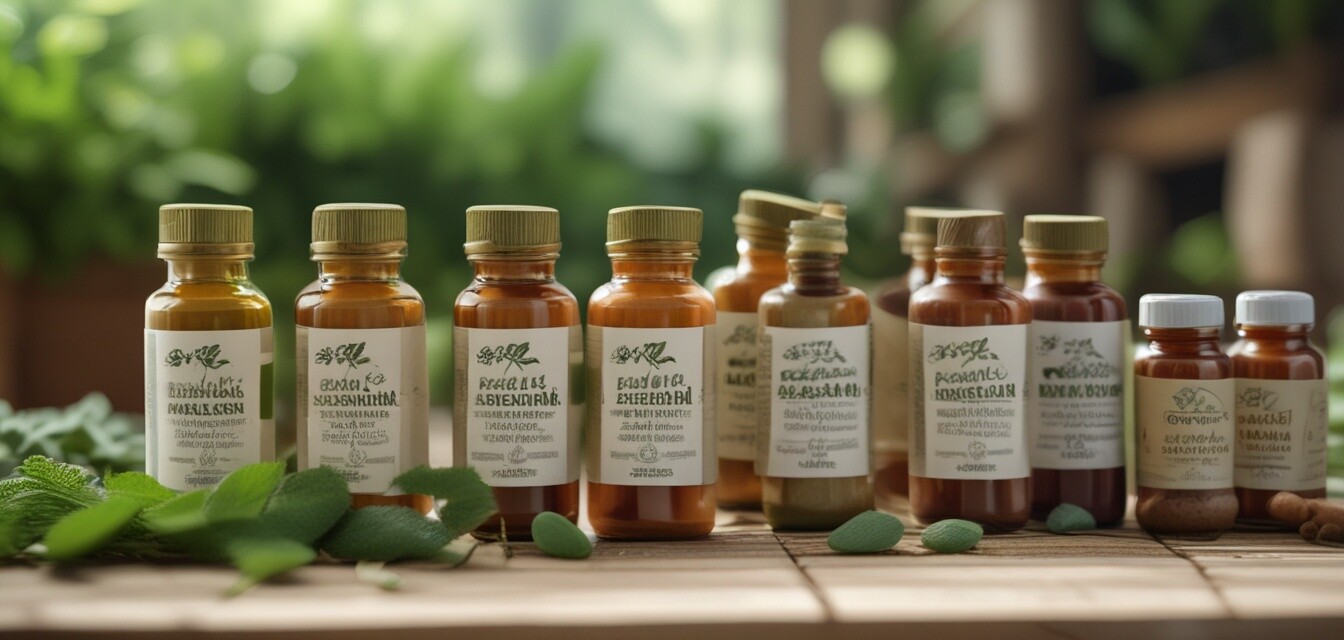
Eco-Friendly Herbal Supplement Packaging Solutions
Key Takeaways
- Sustainable packaging reduces environmental impact.
- Emerging trends focus on biodegradable and recyclable materials.
- Companies are prioritizing transparency in sourcing and production.
- Consumer awareness is driving the demand for eco-friendly options.
As the awareness of environmental issues continues to grow, many sectors are being compelled to adapt in order to consume responsibly. Among them is the increasingly popular herbal supplements industry, where consumers are actively seeking options that not only promote personal wellness but also contribute to a healthier planet. This article explores the emerging trends in eco-friendly packaging for herbal supplements and outlines their potential environmental benefits.
The importance of eco-friendly packaging
Eco-friendly packaging is essential in reducing waste and promoting sustainability. The packaging used for supplements often contributes to waste accumulation, with plastic containers and non-recyclable materials posing significant environmental challenges. By shifting towards sustainable alternatives, brands can minimize this impact and appeal to conscious consumers.
Current trends in eco-friendly packaging
Several innovative solutions are leading the charge toward sustainable packaging in the herbal supplement industry. Below are some of the most notable trends:
- Biodegradable materials: Packaging made from plant-based sources, such as cornstarch or mushroom mycelium, breaks down naturally, leaving no harmful residues.
- Recyclable materials: Many companies are now using materials that can be recycled, reducing landfill contributions and promoting a circular economy.
- Minimalist packaging: Reducing packaging waste by using simpler designs that require fewer materials is a growing trend.
- Reusable containers: Brands are innovating towards offering containers that consumers can reuse, such as jars or packaging that can be repurposed.
- Compostable options: Some packaging is now designed to be composted, enriching the soil and contributing to ecological health.
Emerging materials for sustainable packaging
Several eco-friendly materials are changing the landscape of herbal supplement packaging. Here are some examples:
| Material | Benefits |
|---|---|
| Plant-based plastics | Biodegradable and derived from renewable resources |
| Glass | Reusable, recyclable, and non-toxic |
| Recycled paper | Reduces waste and is fully recyclable |
| Mushroom packaging | Compostable and sourced from agricultural waste |
| Bamboo | Fast-growing, biodegradable, and durable |
Benefits of eco-friendly packaging in the herbal supplement industry
Choosing eco-friendly packaging offers numerous benefits not only for the environment but also for brands and consumers alike:
- Environmental impact: Helps in reducing carbon footprint and waste accumulation.
- Consumer trust: Consumers are more likely to support brands committed to sustainability.
- Corporate responsibility: Demonstrates a brand's commitment to ethical practices.
- Market differentiation: Stands out in a competitive market through innovative packaging solutions.
Consumer influence on eco-friendly practices
As awareness grows, consumers are taking a stand for sustainability and influencing the industry to follow suit. Here’s how consumer behavior is reshaping the packaging landscape:
- Demand for transparency: Shoppers prefer brands that disclose their sourcing and manufacturing practices.
- Preference for natural ingredients: Consumers are leaning towards products with fewer synthetic materials.
- Support for sustainability initiatives: Many are willing to pay more for products that align with their ethical values.
Challenges facing eco-friendly packaging
Transitioning to eco-friendly packaging is not without its challenges, with some barriers hindering a full-scale shift:
- Higher costs: Sustainable materials often come with a higher price tag due to production processes.
- Supply chain issues: Sourcing eco-friendly materials can be complicated and may disrupt existing workflows.
- Consumer awareness: Not all consumers are aware of the benefits of eco-friendly packaging.
Future outlook for herbal supplement packaging
The outlook for eco-friendly packaging in the herbal supplement sector is promising. More brands are prioritizing sustainability as consumer demand rises. Innovations in material science and a focus on reducing environmental impact will likely continue to push the industry forward.
How to choose sustainable supplements
If you’re interested in selecting sustainable herbal supplements, consider these tips:
- Look for products with minimal and recyclable packaging.
- Research the brand's commitment to sustainability.
- Choose supplements made from sustainably sourced ingredients.
- Support companies engaged in environmental initiatives.
Conclusion
As the demand for herbal supplements continues to grow, the packaging solutions utilized by brands will play a pivotal role in defining their environmental footprint. By embracing eco-friendly packaging solutions, the herbal supplement industry has the power to contribute to a more sustainable future while meeting the needs of health-conscious consumers. For those seeking to explore more about how to be eco-conscious with health choices, check out our comprehensive guides on Sustainability Tips and Herbal Supplements.
Pros
- Reduces environmental impact.
- Enhances brand reputation.
- Promotes consumer loyalty.
Cons
- Can lead to increased production costs.
- May have limited availability in the market.